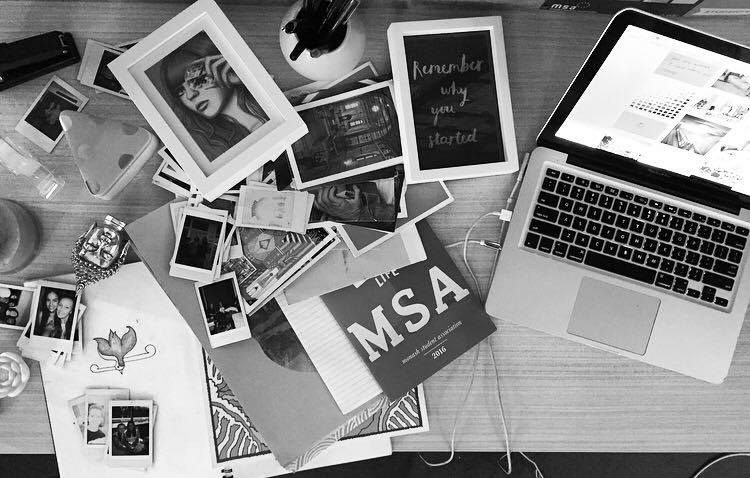We’ve all been in that situation before. Hands on head, clock ticking on one side, papers scattered all over, caffeine or energy drink on one end, table lamp on the other and a bleak computer screen with the words ‘’DEADLINE DUE TOMORROW” right in front . And cue *panic attack*.
As university students, we’re all extremely prone to pull the eventual all-nighter now and then. Some of us do it most of the time and emerge victorious 10/10 (I suspect witchcraft involved with this), but with most, it’s usually just rushing to pass or achieve an average mark. We’re well aware of the consequences associated with our decision of pulling an all-nighter but why do we still do it? Well, science states and proves that when the human brain is subjected to any severe/ intense form of stress and or pressure, it chooses to take the quickest route and carry out the said task as soon as possible. This is simply a survival mechanism. The response enables the human brain to quickly react to life-threatening situations. A semester paper due the next day or an impending exam, etc. would be the precise definition of a life-threatening situation. So, as much as people advise us to get seven to eight hours of sleep, we’re somehow going to deny that suggestion completely, respond to our hormonal and physiological changes and jump on to the bandwagon to complete what’s thought to be, a ‘’successful all-nighter”.
Procrastination here is the mother of all evil and most definitely one of the factors aiding the attempt of an all-nighter. Now, as an avid procrastinator myself I can confirm that the guilt and panic does not kick in until the very last minute; that no matter what task big or small, it just somehow decides to get delayed by itself (or the universe conspiring against it) and if there was a rehabilitation centre for this disease, I would willingly admit myself to it. I say this as I rush to write this overdue article. Guilty as charged. Once procrastination comes into play, the situation all goes downhill and we’re trapped into what seems to be a time crunch filled between caffeine and a computer screen. In this small time frame where we work tirelessly trying to finish our task and when we take the irrational decision of not sleeping, what do you think happens to your brain?
Well first and foremost, your hormone levels rise. Cortisol is a stress hormone and as stated earlier, since your stress levels are already high, deciding to stay awake the whole night makes it rise even more resulting in a decrease in memory, bone density and lowering of immunity. Another two hormones that mess things up are leptin and ghrelin which regulate appetite. In individuals who lack sleep, the body tends to produce less leptin and more ghrelin making you feel constantly hungry. Safe to say, if you’re trying to lose weight or be healthy don’t even TRY to attempt an all-nighter. Secondly, your thalamus goes haywire. The thalamus is an essential component of the vertebrate brain and controls consciousness and alertness .Without this functioning properly, the human mind loses its ability to recognize faces and facts. This can be linked with the popular ideology that an all-nighter doesn’t actually help you retain information, but rather forget it and that your prefrontal lobes get tied up. Working memory is divided into four subsystems and all of these are connected to how well your frontal lobe works, and this takes a hit when you don’t sleep.
Now that you’ve been enlightened about the biological consequences of an all-nighter and will still do it anyways, here are some alternatives you can choose to follow:
1. Switch from caffeine to fruit. Eating an apple has been scientifically proven to keep you more awake than consuming a gazillion amounts of decaf.
2. Read and read and read. Rereading the material during the daytime, and then sleeping on it, helps encode that material into your long-term memory whereas if you study all throughout the night, your brain will have difficulties recalling the necessary information.
3. Chuck out the energy drinks and hit the gym instead. Exercise has scientifically be proven to boost your mood and give you more energy due to the mood-enhancing chemicals that are pumped out when you exercise. So in between breaks, squeeze in a squat or two to pump up some of that energy.
4. Stay cool (literally). When the effects of your sleep rhythm start to chime in, it signals your body to sleep by making you feel colder. Resist the urge to turn up the heat and layer down.
5. Vicks it up. A lesser-known trick for an extra boost is found in Vicks Vapor Rub. Since it is a drug containing menthol and camphor, it tries to stimulate your senses and keep you awake.


